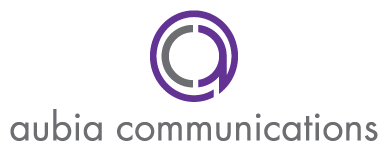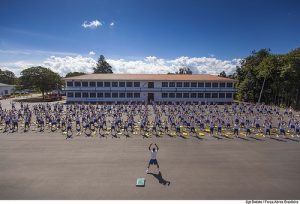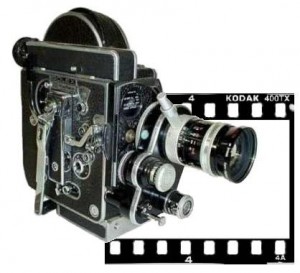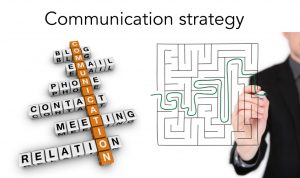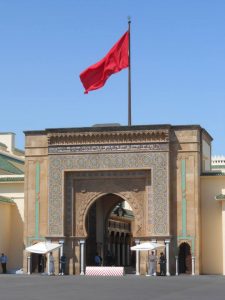 Standing in line to check in for my flight from London to Casablanca was my first taste of Morocco culture. I noticed the flowing of French to the shorter Arabic phrases, men reading the Quran as they waited, and the array of women’s fashion from full burqas to shorts and tank tops. If a country can make an impression on you before you even set foot in it, how rich its culture must be, I thought.
Standing in line to check in for my flight from London to Casablanca was my first taste of Morocco culture. I noticed the flowing of French to the shorter Arabic phrases, men reading the Quran as they waited, and the array of women’s fashion from full burqas to shorts and tank tops. If a country can make an impression on you before you even set foot in it, how rich its culture must be, I thought.
As I would find out during my two weeks there teaching underprivileged children English through the UBelong organization, Morocco certainly has its own unique and intense culture. The country and its people were remarkable, and the talk of the day was how much the nation is developing under the current King Mohammed VI.
As the country continues to advance, public relations in Morocco also marches forward. I spoke with Alex Malouf on the subject after we connected through Media Diplomat. Malouf has worked with U.S. and Moroccan clients on both the agency and corporate side arranging media events with Moroccan news outlets mainly in Rabat and Casablanca.
1. How is PR practiced in Morocco?
Public relations in Morocco is primarily focused upon media relations and consumer/lifestyle. There’s little in the way of public lobbying and Morocco’s investor relations is still nascent compared to the function as it is in the U.S. Internal communications is becoming much more popular than it was five years back, especially among Morocco’s largest companies.
2. What are the main differences, in your opinion, of how PR is practiced in the U.S. and Morocco?
Like much of the PR industry practice in the region, media relations is based on personal relations between agencies and media outlets. This is often the basis for a successful pitch, rather than the quality of the actual pitch. There’s a great deal of emphasis on traditional PR practices, including press releases and events.
3. What are the similarities?
There’s a strong focus on business news in both markets. Wherever you go journalists want numbers, they want relevant information and they want to meet the top executives. With the increasing number of print and online news outlets there’s a greater drive to break stories than there was a decade ago before the internet became mainstream.
4. What do you predict are the major developments for PR in Morocco during the next five years?
Just like in the rest of the Middle East region, social media is having a significant impact on how the public consumes information. While I don’t have any hard and fast statistics, it’s apparent that Moroccans are turning to online media such as Hespress and social media channels to understand what is happening. They trust these outlets, which are updated much more quickly than traditional media.
The challenge that agencies will face is how best to develop social media and digital media skills to ensure that their clients are able to benefit from these media channels. I believe that social media is going to be a key growth driver for the country’s PR industry over the coming five years.
5. What are the challenges to PR in Morocco?
Firstly, there’s the language barrier. Moroccan Arabic differs vastly to other Arabic dialects. Most Moroccans will also speak French, and it’s sometimes easier for an non-Moroccan Arabic speaker to converse in French rather than Arabic.
Secondly, there’s the networking. It takes time anywhere you go to develop a good media network and Morocco is no exception. If you want to achieve the coverage, you’ll have to socialize, pound the pavement and drink lots of tea!
There’s also the frustration of agencies competing on pricing rather than quality. The industry is maturing, as are the demands of clients. However, Morocco lags behind the U.S. when it comes to the concept of getting what you pay for. Many clients still have the concept of wanting as much coverage for as little cost as possible. This is only going to change with time, as the old guard of budget owners on the client side are replaced with communications practitioners who understand the importance of PR and the resources needed to execute properly.
6. What advice would you give PR practitioners in the United States looking to work in Morocco or with Moroccan colleagues and vice-versa?
Most importantly, understand and embrace the differences in the culture and the working practices. The quicker you adapt, the better you will be able to perform in the local PR industry.
Morocco’s PR industry is steadily growing, and you’ll see more multinational agencies entering the market which should help to raise standards. I’ve seen the quality of the local PR industry increase dramatically over the past five years, and I have no doubt that with today’s generation of Moroccan PR practitioners the industry is only going to get better and that local firms will be able to compete with multinationals on the basis of their output rather than on price.
Morocco is a wonderful country, but just be aware that not everything happens as planned and be flexible enough to make the most of any media opportunity. Like in the rest of the Middle East, there’s a different concept of time and planning and you’re going to have to adapt. Otherwise, you’re going to end up a very frustrated expatriate PR professional.
 Alex Malouf is the Arabian Peninsula communications manager for Proctor & Gamble. His professional roles include events management, media relations, corporate branding, public affairs, investor relations and media training. He is also the co-chair of the Professional Development & Knowledge Sharing Committee for The Middle East Public Relations Association where he works with PR agencies, corporations, educational institutions and other stakeholders to improve and advance the levels of PR and communications education, training and professional development in the region. He has a decade of experience working with a large portfolio of clients spanning every phase of corporate development including public offerings, product or company launch, internal communications and corporate affairs, crisis communications and ongoing corporate positioning.
Alex Malouf is the Arabian Peninsula communications manager for Proctor & Gamble. His professional roles include events management, media relations, corporate branding, public affairs, investor relations and media training. He is also the co-chair of the Professional Development & Knowledge Sharing Committee for The Middle East Public Relations Association where he works with PR agencies, corporations, educational institutions and other stakeholders to improve and advance the levels of PR and communications education, training and professional development in the region. He has a decade of experience working with a large portfolio of clients spanning every phase of corporate development including public offerings, product or company launch, internal communications and corporate affairs, crisis communications and ongoing corporate positioning.
